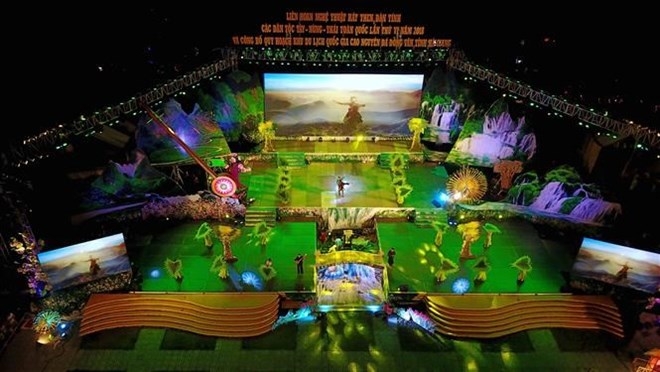


|
|
|
Nguyen Thi Hai Nhung, head of the Department of Traditional
Culture under the Ministry of Culture, Sports and Tourism, said the festival
offered a chance to promote the cultural heritage of Vietnamese ethnic groups
to international friends and honour an art form of the Tay, Nung and Thai
groups.
She affirmed that during the event, Vietnam’s heritage, and Then
singing in particular, made strong impressions on visitors.
The festival gathered more than 500 artisans from the 14
provinces nationwide. It was considered a rendezvous for Then melodies,
dances, and music from different ethnic regions.
Art troupes staged nearly 60 performances of Then singing
accompanied by music played on the Tinh lute. These performances were deeply
imbued with traditional cultural identities of Tay, Nung, and Thai
ethnicities.
At the closing ceremony, the organisers presented certificates
of merit from the Minister of Culture, Sports and Tourism to outstanding
organisations and individuals who took part in the festival.
According to researchers, the word "Then” originates from "Thien”,
which means sky or heaven. Then singing is regarded as a tune of the Gods.
The most important figures in a Then singing performance are
"Ong Then” and "Ba Then” who can sing, dance, and play musical instruments at
the same time during rituals while presenting offerings to the Gods, helping
to ask for good health, bumper crops, happiness, and longevity.
In 2017, the Ministry of Culture, Sports and Tourism submitted a
dossier to UNESCO to seek the recognition of Then sining as part of the
world’s intangible cultural heritage.
|
Source: NDO